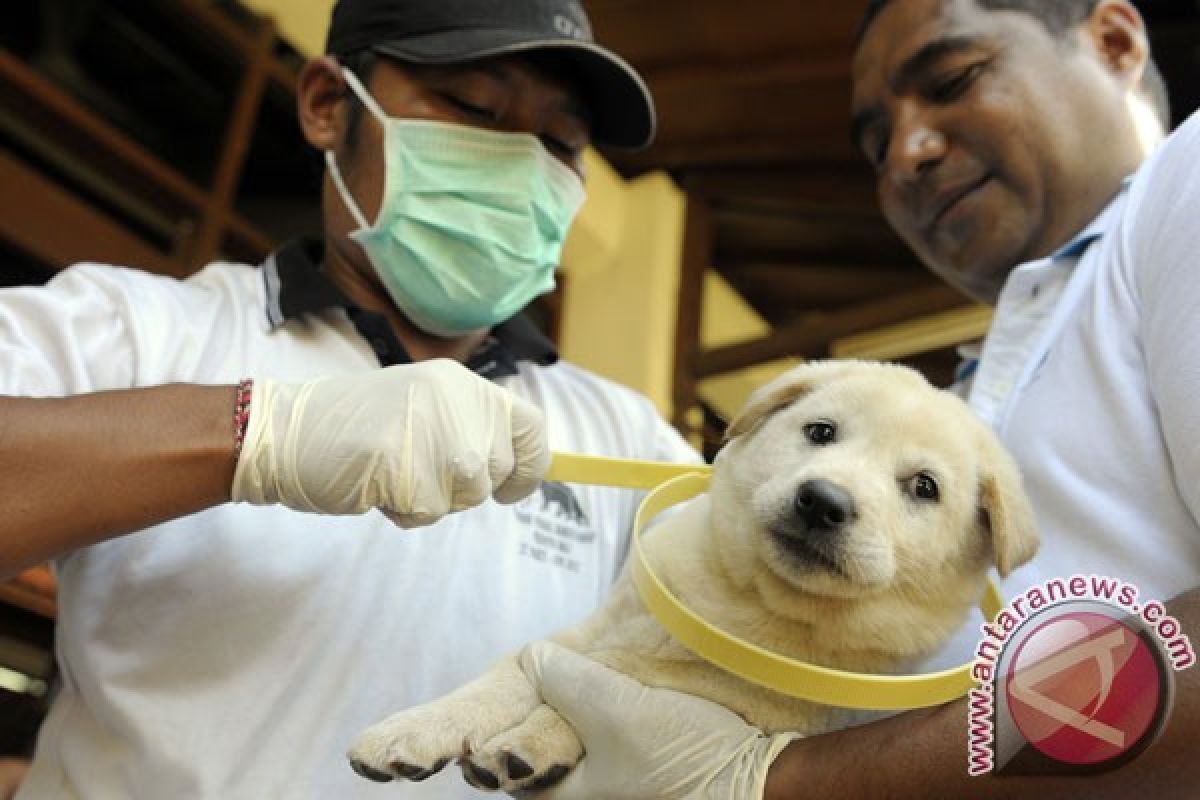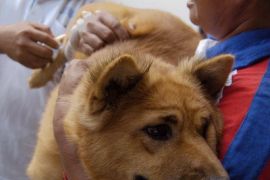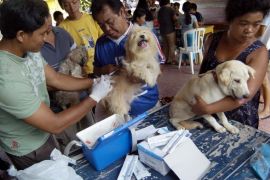"The budget will be used to purchase rabies vaccinations and cover operational costs, as they will be allocated from the regional and national budgets," Head of Animal Health Division of Balis Livestock and Animal Health Office Nata Kesuma said here on Tuesday.
As much as Rp2 billion will be used to procure rabies vaccines, while Rp4.18 billion will be spent towards operational costs in the nine districts in the province that are susceptible to the disease.
The amount allocated was raised from the Rp5.9 billion set aside in the budget for 2014. While Rp3.5 billion was used to buy vaccines, Rp2.4 billion was spent on operational costs.
"We will focus the efforts in areas with a high population of free-ranging dogs and pups," Kesuma stated.
Currently, there are some 70,000 doses of rabies vaccines available from the 2014 program, while the administration is set to buy 250 more doses for the prevention and control program this year.
The issue of rabies receives great importance in Bali as dogs have always been an integral part of Balinese culture.
In 2011, the Food and Agriculture Organization (FAO) of the United Nations, with the support of the USAID and the World Society for the Protection of Animals, has been assisting the local government to rapidly control the spread of the deadly rabies virus on the island of Bali through an innovative strategy centered on comprehensive mass vaccination of dogs.
Since May 2011, the provincial and local governments of Bali, in coordination with the Directorate General of Livestock and Animal Health Services of the Ministry of Agriculture, have been carrying out an island-wide dog vaccination campaign to ensure that 70 percent of the dog population is vaccinated, thereby preventing the transmission of the virus.
As a result of the efforts, the FAO recorded a decline in the number of human rabies cases from eleven per month in 2010 to just one per month the next year.
Following mass vaccination of dogs, there was another major decline in 2012 and 2013, when the number of reported cases dropped to only one in all of 2013.
The FAO noted that the model developed in Bali was now being modified and used in other affected parts of Indonesia to progressively control and eliminate the virus from the entire country.
(Reporting by I made Surya/Uu.A059/INE/KR-BSR/A014)
Editor: Priyambodo RH
Copyright © ANTARA 2015











